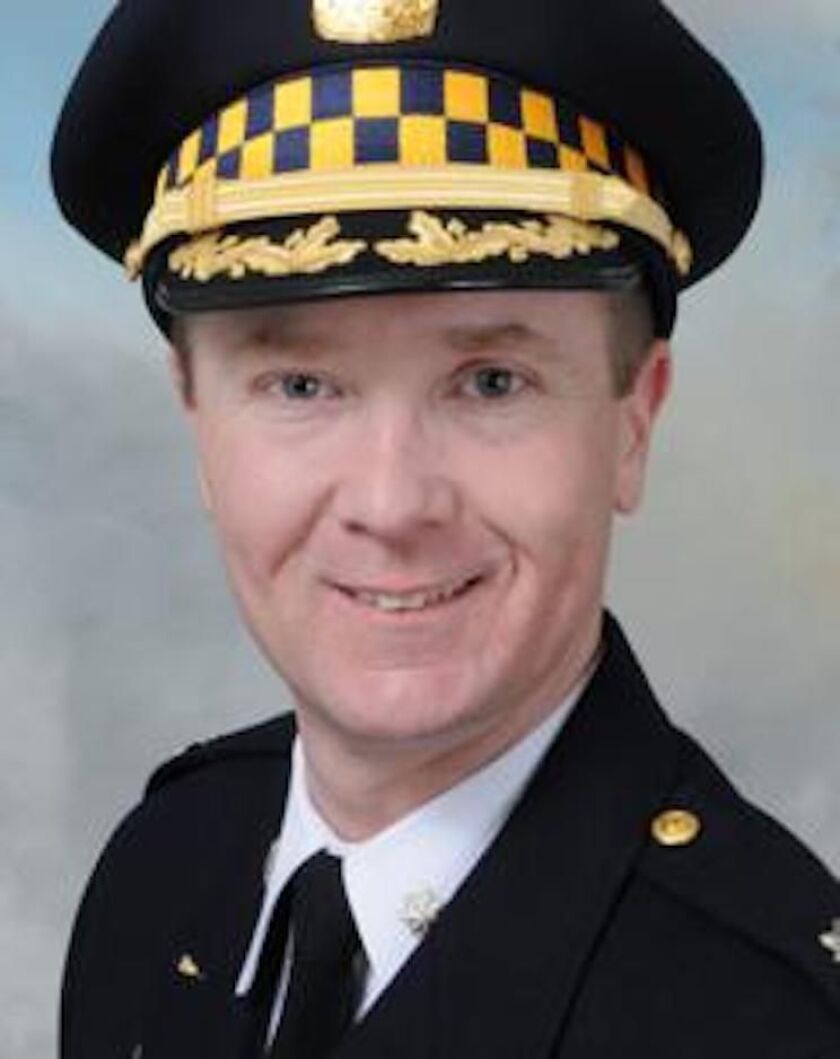The Chicago Police Department, looking to expand its Special Weapons and Tactics team, has launched a new hiring process for cops to become SWAT officers, allowing those who fall short of passing all of the requirements to provide “heavy-weapon support” as they work to meet the remaining qualifications.
“We are understaffed,” Deputy Chief Sean Loughran said. “For a city our size, we should have a much bigger SWAT team. New York has a vastly larger [team]. So does L.A.”
The city’s 2021 budget provides for 71 SWAT officers, three sergeants and a lieutenant, though Loughran wouldn’t say how many SWAT officers are now on the team or how many the department would like to have.
He said the team is increasingly busy as beat officers have been trained to call for SWAT in many more life-or-death situations. In the past week, SWAT officers safely ended a hostage situation in which an armed man threatened to kill his ex-girlfriend at a South Side home.
Loughran said Chicago police Supt. David Brown — a former SWAT officer in Dallas — was “sympathetic” with the idea of expanding the team. On Tuesday, Brown approved a change in how the SWAT team is hired. There will now be two skill levels of officers on the team.
“Tier one” will be officers who’ve passed all of the SWAT requirements. They will be full-fledged SWAT “operators” who respond to hostage situations, suicide threats and other high-risk assignments.
The second tier will be cops who were near but fell short of meeting all of the requirements to become operators. They will rove the streets to provide support to SWAT team operators, Loughran said, for instance, establishing perimeters around crime scenes.
Officers in the second tier will have one year to meet the requirements to become operators. But they can be sent back to their original units any time their supervisors feel they aren’t right for the job. If they fail, they will have another chance to apply.
The department is accepting applications for the SWAT team until Jan. 7. Since November, it has been holding one-day SWAT training classes to give patrol officers a sense of what it takes to be on the team, Loughran said. About 20 officers have taken the class every Wednesday. The classes are being offered through the end of the year.
“It takes some of the intimidation factor away,” Loughran said of the one-day classes.
He’s hoping the sessions will result in more applications.
Some cops who’ve been on the SWAT team, speaking on the condition of anonymity, told the Chicago Sun-Times they’re concerned the two-tiered system could weaken the selective program. They said they worry about second-tier SWAT officers being the first to arrive at an emergency scene and that the training would be “watered down.”
Loughran said the new policy won’t lower the standards. He said about 8% of officers nationally meet the requirements to join SWAT teams and that Chicago is about the same. He said he doesn’t expect that to change under the new policy, which he said has been under consideration for about a decade.
In every hiring cycle, Loughran said there were always a handful of officers who barely missed the cut and weren’t allowed to join.
“Some are very, very close,” he said. “These are people we will hold on to for a little bit and bring them along.
“Is this an opportunity for diversity? Yes,” Loughran said. “But we would do our officers a disservice by putting someone into this position just for diversity’s sake.”
Cops seeking to become SWAT operators have to pass a tough physical exam and must show they’re proficient with their handguns and M4 rifles, can work in a gas mask and are unafraid of heights or swimming. They must know how to use tools like acetylene torches, gas-powered saws and rotary hammers.
During testing, the officers must be able to hit their targets at least 80% of the time with a rifle on the firing range, pass a swimming test during which they remove their SWAT gear in deep water, climb a 30-foot ladder to simulate going into the third story of a commercial building and complete two separate training schools before they can become members of the SWAT team.







